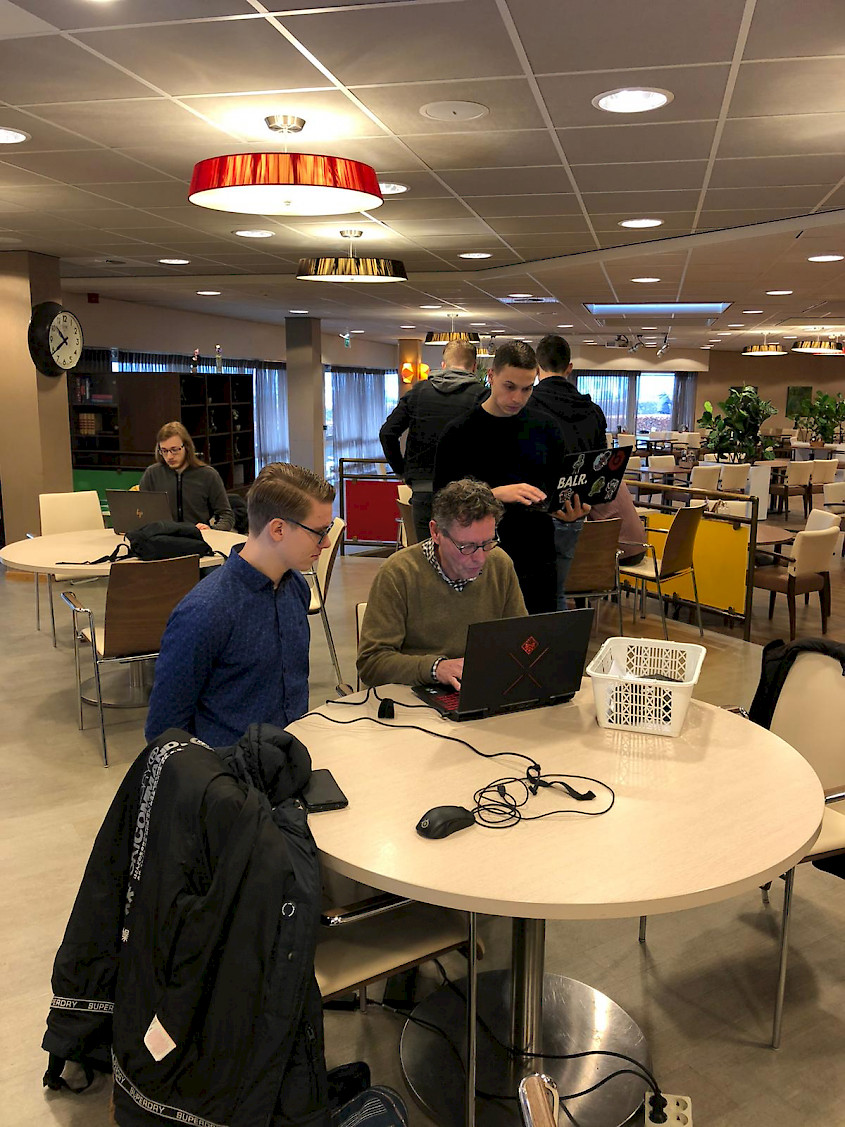Residents De Wever in Tilburg are first users
De Wever asked FHICT Tilburg whether an app could be developed in which the social aspect is central. Sharing common interests and meeting each other, that's what it's all about (for example to make contacts with someone to spend an evening together at the community centre or to go for a walk in the neighbourhood). The project group consisting of three ICT & Business students and six ICT & Software Engineering students from FHICT Tilburg took up the assignment. Sander Vlug, one of the students, explains: "We started with preliminary research regarding the technical basis of the app. While making this basis, we had some setbacks. For example, we thought we could get a ready-made prototype from the group that had already worked on it last semester, but we had to rebuild the product ourselves. But meanwhile this is running well and the residents and employees of De Wever have tested the app. We processed the feedback points, after which we started the pilot with various basic functionalities".

Social problem
A good example of cooperation between a social organization and students. "I like social themes. You see progress, we go there every week. You have the chance to actually test it in practice. You don't ask your grandmother for feedback. It's real. And a very interesting target group. How do you transfer information to people with dementia? The first reactions are very positive. There is also a little bit of anxiety, it's something new." says Sander. In addition, it is also innovative. "The link between the app and the "normal" social work in the neighbourhood is new. The other apps create their own community but are not linked to the neighbourhood, the village or the municipality," explains Kees Velthuijs, ICT & Business teacher and project supervisor.
From pilot in Tilburg to app throughout the Netherlands
"In our education we often make new products (so called "greenfield development"). This is more of a relay project: the students continue with the outcome of previous projects. Now we are so far that the solution can actually be used as a pilot. A next project can deliver a first "real" version based on that evaluation," says Kees. It was quite a challenge to deliver the app on 21 January 2020. Expectations were very high. "It is now a pilot for the residents of De Wever. The basis that stands with various functionalities. In the end, we still want to go to the next step. That is a well-functioning app that we can offer to elderly people throughout the Netherlands. Think of extra facilities such as notifications when you're a bit late, sending chat messages and maybe even FaceTime. Contour De Twern and ABP have already shown interest.
Author: Maartje van Hees - Fontys Hogeschool ICT
Photo: De Wever